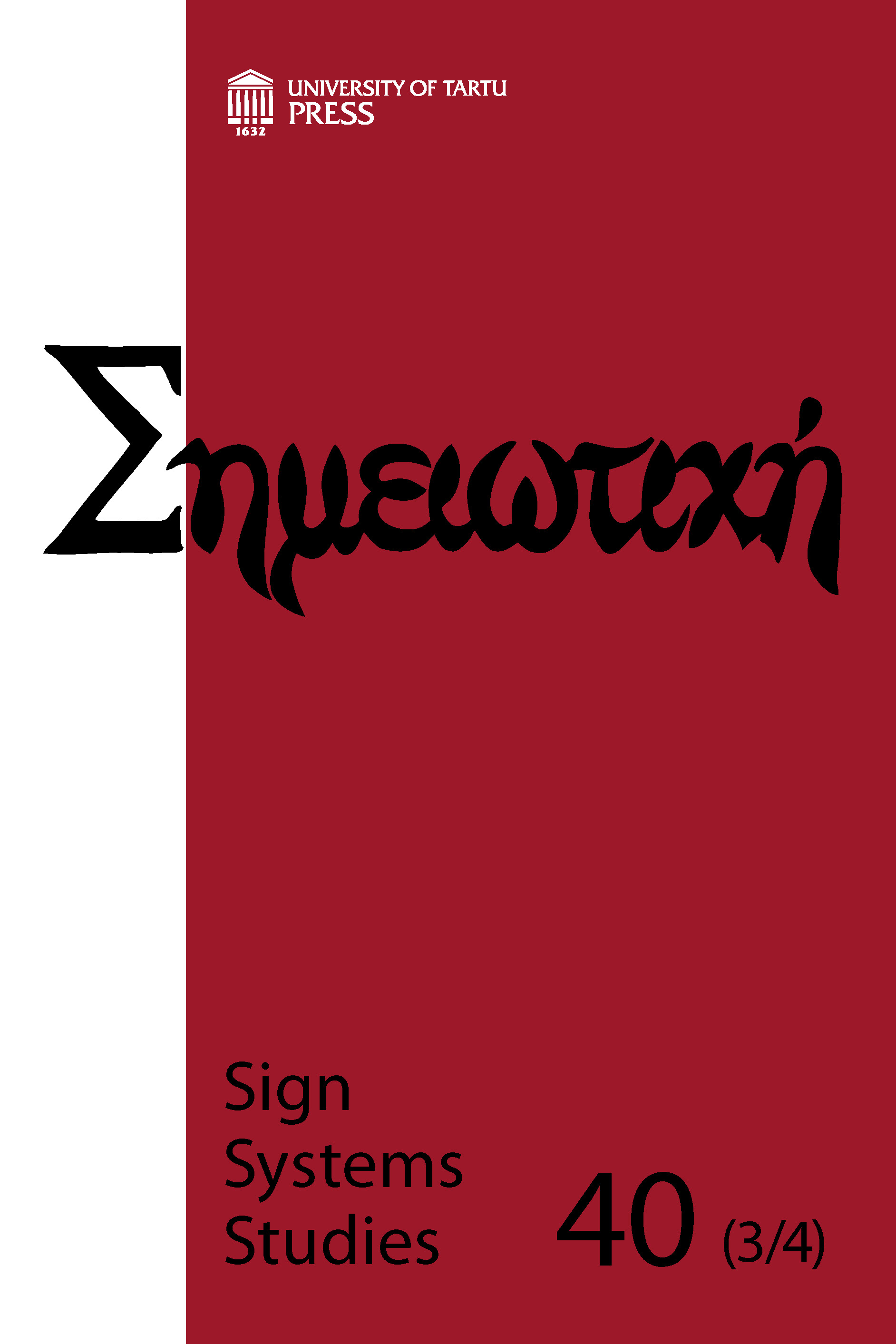Theses about the poietic principle of metonymy
DOI:
https://doi.org/10.12697/SSS.2012.3-4.14Abstract
The paper observes the relation of fictional/figural discourses to language-games that are active in reality. The starting point for the discussion is the "theory of two contexts" by Arne Merilai, the basic idea of which is distinguishing between fictional and factual speech acts on the basis of their different contexts of truth value. It seems to be justified to expand it to the whole sphere of figurality. After that the paper views John Gibson’s Wittgensteinian theory of fiction as an archive of standards/etalons of languagegames and a laboratory of reshaping and creating these standards. The fictional/figural sphere can be described as the area of possibility that creates language-games of reality via poiesis. The article describes some cases where the logic of figural sphere is introduced directly into real political discourse, forcing the reality to act according to the rules of art, but thus excluding the ethical freedom of our real-life language-games. It means that there exists a certain principle of metonymy between the figural sphere as archive and laboratory of standards, on the one hand, and the language-games of reality, on the other hand, while violation of that principle involves a danger of losing the reconciliatory power of fictionality/figurality that, according to Jaak Tomberg, is a significant function of literature as a human practice. There are several possibilities for further analysis: the cases where the danger can be turned into something positive; the problems and gains of art forms (certain forms of the theatre, happenings) that use techniques of intrusion into reality; the question if such violation of the "principle of metonymy" is specifically connected with modernist avant-gardism or not.Downloads
Download data is not yet available.
Downloads
Published
2012-12-01
How to Cite
Pilv, A. (2012). Theses about the poietic principle of metonymy. Sign Systems Studies, 40(3/4), 529–546. https://doi.org/10.12697/SSS.2012.3-4.14
Issue
Section
Articles


